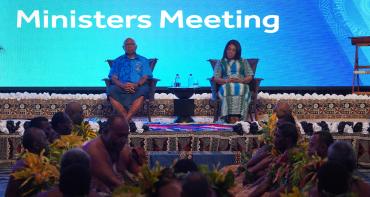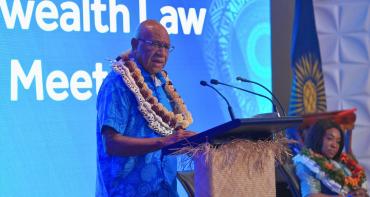Tanzanian citizens will be the first to benefit from a Commonwealth-wide initiative to put more women at the helm of public and private sector organisations.

Tanzanian citizens will be the first to benefit from a Commonwealth-wide initiative to put more women at the helm of public and private sector organisations.
The project, which kicks off on 22 June, will include advocacy, long-term assistance to local initiatives, and support to government to ensure that legislation, policies and programmes take into account the different implications for women and men.
The Commonwealth has a target of 30 per cent for women’s representation in senior leadership positions. Last year a Commonwealth report on women’s leadership revealed that while some progress has been made, the number of women on private sector boards remains below 25 per cent in many Commonwealth states.
In Tanzania, only four of the 19 cabinet ministers and 36 of the 136 public and civil service directors and heads of departments are women. Commonwealth gender expert Sarah Kitakule says there is an opportunity for the Commonwealth to work with the public and private sectors as well as civil society to improve those numbers.
“Tanzania has signed and ratified major international agreements to promote gender equality and has created a number of internal initiatives, including a Diversity Management Unit and ministries responsible for gender equality and the empowerment of women, so there is a strong political will for change,” she said.
“Our aim is to get to a first-hand understanding of the barriers that are preventing women from climbing the ladder in public offices and private corporations, and offer some real solutions to boost the effectiveness of ongoing efforts to address the issue.”
The launch of the project will include a number of women’s leadership advocacy events, with speakers from the Tanzanian parliament, government ministries, civil society and Commonwealth partner organisations, including the United Nations Development Programme.
It comes weeks before senior women leaders meet in London to develop a Commonwealth manifesto and action plan on gender issues and equality.
Ms Kitakule concluded: “Recent figures show that women are driving the global economy, as they control about $20 trillion in annual consumer spending. This week we really want to highlight the fact that there is a direct link between superior business performance and diversity on boards, and that women’s leadership is inextricably linked to economic and social progress.”



